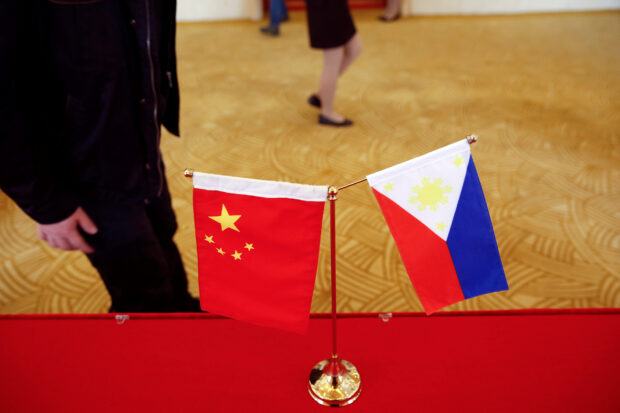
FILE PHOTO: National flags are placed outside a room in Beijing, China, January 23, 2017. REUTERS/Damir Sagolj/File Photo
MANILA, Philippines — A Chinese foreign affairs spokeswoman who “insulted” President Ferdinand “Bongbong” Marcos Jr. doubled down, saying that China will never accept “provocations” about “the Taiwan question.”
Chinese foreign affairs spokesperson Mao Ning was responding to Defense Secretary Gilberto Teodoro Jr. who, in a statement on Wednesday, called her remarks against Marcos “insulting” and “gutter-level talk.”
READ: Teodoro blasts China’s spox ‘gutter-level talk’ after ‘insulting’ Marcos
This, after Mao stated Tuesday that Marcos should “read more books” to understand the Taiwan issue after the Philippines’ chief executive congratulated Taiwan’s President-elect Lai Ching-te.
“It is completely legitimate and necessary for China to state our solemn position,” the official said in a statement on Thursday.
“China will never accept anyone making provocations on the Taiwan question and will resolutely fight back,” she added.
Mao also said such talks “blatantly interferes” with China’s internal affairs.
READ: Marcos greeting to new Taiwan leader irks China
“The remarks of the Philippine side seriously violate the one-China principle and the joint communiqué of establishing diplomatic ties between China and the Philippines, seriously go against the Philippines’ political commitments to China, and blatantly interfere in China’s internal affairs.
The spokesperson further said that “the Taiwan question is at the core of China’s core interests and bears on the sentiment of the 1.4 billion Chinese people.”
PRC, which regards Taiwan as a renegade province subject to reunification, has never renounced the use of force to bring it under its control.
The defeated Republic of China government fled to Taiwan in 1949 after losing a civil war with the communists who founded the PRC.